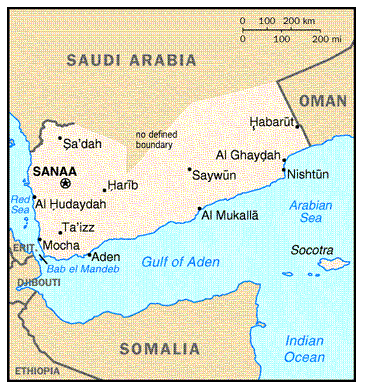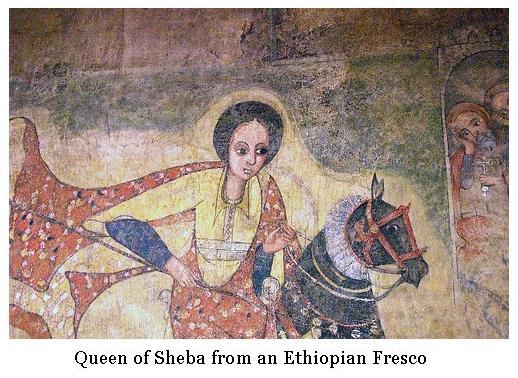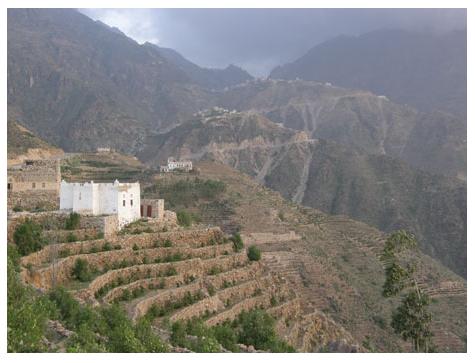November 2011 No. 1 - Queen of Sheba and Yemeni Coffee
 |
|
Did the Queen of Sheba Drink Coffee?

So what do we know about this interesting corner of the world, which sits across a narrow strait from Africa, at the the Bab el Mandeb, the "Gate of Grief" which connects the Indian Ocean to the Red Sea? Some believe that Yemen and Ethiopia were once part of the Kingdom of Sheba, of the Queen of Sheba fame. It may be that she was from Yemen itself, since many believe that the kingdom's capital was located there. But our interest is in Yemeni agriculture, and in particular, its coffee.

Yields are low. The small size of the farms, scarcity of water and poor cultivation techniques hamper production. Many of the coffee farms are cultivated by tenant farmers, deterring investment as well in terracing, water conservation, and other improvements. The various cultivars of coffea arabica grown in the mountains are some of the oldest known, and most are known only in Yemen.

There is something a little wild about the flavor of our Yemen Mattari. It starts with a hint of dark chocolate in the aroma, which shows up again in the taste. The coffee is rich with medium acidity, just the right brightness, but there is something that tastes almost green or herbal that adds, perhaps, a taste of the steep mountain terraces it is grown on. It is an excellent coffee and we hope you enjoy it.
Oh, and finally, it is very unlikely that the Queen of Sheba drank coffee as it appears to have been discovered in Ethiopia around 900 AD, about two thousand years after her era.


